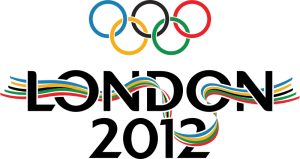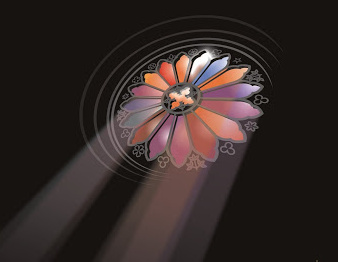For the first time, every country with a team in London will have female athletes competing. Last week, NY Times Columnist Frank Bruni’s column, “Women’s Time to Shine” focused on the American women’s Olympic team. Decades after Title IX, women’s team sports still lag behind the big men’s sports – only basketball has both professional men’s and women’s teams (with WNBA supported significantly by the NBA). But, as Bruni notes, the Olympics is a different ballgame…at the Olympics – American women come front and center:
Then come the Olympics, a sporting event as raptly watched as any other, with the ability to bestow fame and lucre on the victors, and much of this disparity collapses. Girl power gets its sweaty, sinewy due.
Newsweek recently anchored its Olympics preview package with a long profile not of one of the competition’s expected male standouts but of one of its expected female ones: Hope Solo, the goalie for the American women’s formidable soccer team. Solo also appeared on the magazine’s cover. Although the latest stab at a women’s professional soccer league in the United States failed two months ago, women’s soccer will be front and center at the Olympics. And London could turn Solo and her teammate Abby Wambach into sponsor-coveted superstars.
Women’s volleyball is as closely watched as men’s. Ditto for women’s track and field. Has there been a male runner from the past few decades who enjoyed any more name recognition than Florence Griffith Joyner? She could be conjured in two syllables. Just say Flo-Jo.
By a few measurements and in a few instances the Olympics turns the usual gender imbalance on its head. This year, for the first time, the American contingent of athletes comprises more women (269) than men (261).
While we field a men’s gymnastics team every four years, the women routinely eclipse it. They tend to stack up better against other countries’ squads, and glory trumps gender in the allocation of Olympics airtime.
OUR women gymnasts are again in the hunt for a team gold this year, and they’re a fierce crew. I watched their qualifying trials, during which a few of the aspirants who didn’t make the team took ghastly, brutal falls from the uneven parallel bars. In response, they brushed themselves off and resumed whirling, each dizzying spin a new invitation to injury. And we debate whether women are tough enough for combat?
At the Olympics we liberate them from the straitjackets of convention and conformity that we too often ask them to wear. We acknowledge that female glory takes many forms.
Yesterday, my sister and I watched as the US Women’s soccer team wobbled in the first fifteen minutes against France and then fought back with athletic determination and a show to remind everyone – Abby Wambach and the American women are the reigning Olympic champions. And yet, there were scores of empty seats in Glasgow’s Hampden Park stadium. This is the Olympics, my sister exclaimed, why isn’t this stadium full? Is it because it’s the women? So we waited until the start of the men’s tournament today – and the same stadium but decidedly less empty seats. Both matches were emotional and dramatic (Japan beat Spain!!!) and both formidable soccer match ups. So why was so much of Glasgow empty for the women’s match? Was it really just because they’re women? There were scores of empty seats at the Great Britain women’s game – and that is the home team!
As Bruni notes, thanks to Title IX a great deal of money and effort has been put into supporting the growth of female athletes. The dominance of American women at the Olympics and the outpouring of support (noted by television airtime!) is a testament to this. But, as those empty seats in Glasgow indicate gender discrimination and a double standard is still very much at play in the 2012 Olympic Games, just look at the Japanese team’s travel arrangements.
The Japanese Women’s soccer team are the reigning World Cup champions – and yet, the women flew coach to London while the men flew business class. Krystal Bonner reported in Slate Magazine,
The defending Women’s World Cup champions from Japan won their Olympic opener today against Canada 2-1. The Japanese soccer team showed no ill effects from their 13-hour flight to Europe, where they were bunched into the plane’s “premium economy” section. Japan’s less-storied, non-World Cup-winning men’s team, meanwhile, flew business class at much greater expense. “I guess it should have been the other way around,” women’s team captain Homare Sawa told the Japanese press.
It’s not just the Japanese who practice Olympic air-travel discrimination. Australia’s men’s basketball team likewise enjoyed the comforts of business class on its way to London while the women’s team flew in the back. As with the Japanese soccer teams, the Australian women have been more successful than the men on the court, winning three straight silver medals in basketball.
Basketball Australia has said it is reviewing its Olympic travel policy. The Japanese Football Association, however, has defended its airborne sexism, stating that the men’s soccer team must fly business class because it’s stipulated in the players’ professional contracts. “The women’s game doesn’t have those conditions yet,” explained a Japanese Football Association media officer. “Also, body size does come into the equation,” the official added.
Now, the Japanese men just won a massive upset against gold-medal favorite Spain…they too are world class athletes. My problem is not with these athletes flying business class, but with the double standard. But the very idea that it is acceptable for the men’s team to fly business class while the women fly coach (women who are world cup champions…) once again reveals active and persistent gender discrimination in international sports. Since the women’s sport is not powerful enough to negotiate a contract demanding business class, it is acceptable to treat them as lesser. In 2010 the women’s team received an upgrade to business class for the flight home after winning the World Cup. Bonner questions whether this is some sort of inducement – holding out business class to get the women to play harder; however, we are talking about world class athletes, that kind of manipulation for effort is quite childish. I am certain there are many discrepancies in national Olympic teams – all sports are not treated equally and travel arrangements to the Olympics may seem trivial. (Especially when compared to athletes traveling from countries struggling to pay to send them at all). I understand all of that. And yet, when the more dominant international athletes are treated differently because they are women something there is a problem.
At St. John’s our freshman summer reading book is Half the Sky by Nicholas Kristoff and Sheryl WuDunn. As I read through the harrowing, heartbreaking and horrifying accounts of sex trafficking of women and girls – it is quite clear that women and girls are viewed as less-human in many places. The full humanity and equality of women must be a priority.
American media is hailing London 2012 as “the Year of the Woman” and as we try and fight for gender equality for women – it is important to use the large international spotlight of the Olympics to demonstrate that equality.





Don’t you suppose the discrimination has more to do with money than gender? I don’t know how popular men’s soccer is in Japan, but I would bet that if the men’s team had to share a flight with a bunch of Japanese female pop stars the men would have been pushed to coach. You might say that the money difference between men’s sports and women’s sports itself is a result of gender discrimination, but who should we expect to support women’s sports to the same extent that men’s sports? I don’t think it is reasonable to expect male soccer fans to be as interested in women’s soccer as they are in men’s. Until female fans invest in sports in the same number and intensity as male fans, it is natural that women’s sports will lag behind men’s. That said, I think the current US women’s team is a special bunch and I hope they will bring in a sector of fans who are alienated by professional sports culture. That’s what will have to happen for women’s sports to succeed as a professional business.
I don’t think money and gender discrimination can be separated so easily. IN the case of Japan – the women are the ones with significant endorsement deals, they are the one’s who were given the people’s honor award from the government and are ranked 3 in the world (the men 20th).
Now I would be fine with all athletes flying coach, or making individual athletes who desire to pay for their own upgrade (which some countries do). But when we are talking about national teams for the Olympics – maintaining traditional gender discrimination is not acceptable. (The Japanese women are far bigger stars than the men, but they are WOMEN).
The point of the NYTimes article was that the success of title ix in the USA is really seen in the Olympics — as many women are world class athletes in sports that aren’t professional leagues (like gymnastics or swimming). The question of female fans and whether or not men can be expected to care about women’s soccer – ends up being demonstrated in what gets prime-time olympics overage (b/c as Bruni indicated, gender stereotypes fall away with the Olympics) – but why is it those gender stereotypes ONLY really fall away once every 4 years?
Women and girls around the world are treated as less-human, discounted people. We need to point out the small more subtle ways of gender discrimination like the Japanese plane arrangements – so that they are noticed and we’re more attuned and paying attention to the much bigger attacks on the equality of women and girls.